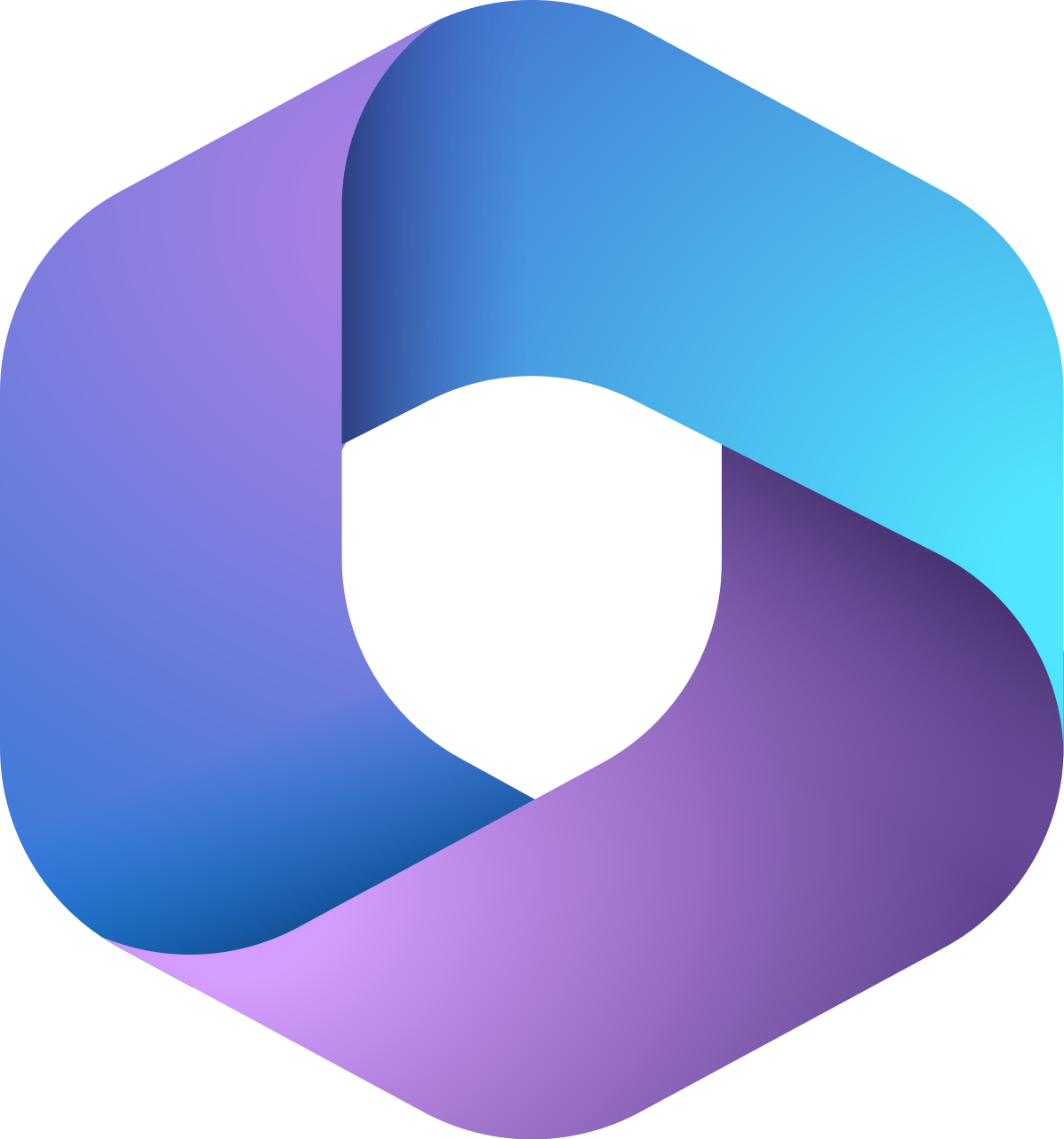Immersive spaces in Microsoft Teams, currently in preview, will be generally available in
January 2024. Immersive spaces in Teams will bring the power of Mesh into the place
where people work every day – Microsoft Teams. From the View menu in a Teams meeting,
users can easily transform a 2D meeting into an immersive 3D experience.
Key capabilities in immersive spaces in Teams will include:
• Avatars: Choose an avatar previously built for standard 2D Teams meetings or
create a new one. Avatars are easy to customize to reflect a person’s appearance,
style or mood for the day.
• 3D environments: Choose from one of the ready-made 3D environments based on
meeting needs, whether it’s a big team, social gathering or a small round-table
discussion.
• Seat assignments: Select where to sit in a meeting or event to drive connections
with others.
• Spatial audio and audio zones: Have multiple, simultaneous conversations and
communicate eQectively in subgroups without talking over each other.
• Interactive activities: Play built-in interactive games within immersive spaces.
Designated areas include spaces to roast marshmallows, throw beanbags, answer
icebreaker questions and more.
• Live reactions: Use live reactions, such as hearts, thumbs up or clap, during
discussions.
Microsoft Copilot for Microsoft 365 enhanced with Microsoft Viva will provide AIpowered
assistance for employee experience. Copilot will work across Viva data and
applications as a single interface to guide employees, managers and HR leaders with selfservice
insights and experiences such as understanding team health, setting new priorities
with OKRs (Objectives and Key Results) or upskilling for career growth.
This new integration will be available for customers who have deployed both Copilot for
Microsoft 365 and the Viva suite and will be in private preview early next year.
Additionally, updates to Copilot experiences in Viva apps will help organizations better
understand and engage with their workforce to improve performance and include:
• Copilot in Microsoft Viva Insights will enable leaders and their delegates to use
natural language prompts to generate personalized, dynamic reports that answer
questions about their teams and organization, and will simplify the query building
process for analysts. This Copilot will be in preview early next year.
• Copilot in Microsoft Viva Goals will enable users to easily generate and refine
goals with conversational AI and from existing strategy documents, as well as
summarize goal progress to share with and across teams. This Copilot will be in
preview in December 2023.
• Copilot in Microsoft Viva Engage will help inspire leaders and employees to post
using AI-created conversation starters, prompts and images. It will also give leaders
insight into employee sentiment, cultivate an environment of trust by tailoring and
refining message tone and enhance the quality of questions being asked with
suggested prompts. This Copilot will be in preview in January 2024.
• Copilot in Microsoft Viva Learning will allow users to easily create structured
learning collections, find the right learning resources and summarize learning
content using conversational AI. This Copilot will be in private preview for joint Viva
and SAP SuccessFactors customers by the end of 2023.
• Copilot in Microsoft Viva Glint will enable leaders to summarize and analyze
thousands of employee comments from employee engagement surveys and provide
a fresh way to explore feedback by asking questions through natural language. This
Copilot will be available for private preview in January 2024.
Additionally, see here for details around a new dashboard from Viva Insights that provides
leaders and organizations visibility into Microsoft Copilot adoption and impact.
Microsoft Copilot Studio is an end-to-end conversational AI platform that empowers users
to create and customize copilots using natural language or a graphical interface. Copilot
Studio is the perfect companion for Microsoft Copilot for Microsoft 365, putting IT in
control, while ensuring predictability of responses for key topics.
With Copilot Studio, users will be able to easily design, test and publish copilots that suit
specific needs and preferences. Users will be able to leverage the power of generative AI to
dynamically create multi-turn answers over data and dialogues that are engaging and
relevant for users, and to add specific conversations for predictable scenarios that require
authored responses and workflows, such as expense management, HR onboarding or IT
services.
Copilot Studio will also enable users to link copilots with the broader Microsoft
Conversational AI stack through integrations with Azure AI Studio and additional Azure
services. This will allow users to access advanced features, like speech recognition,
sentiment analysis, entity extraction and more, while having full visibility and control with
built-in governance.
Copilot Studio will provide an intuitive and integrated design studio experience for makers.
With plugin builder, makers will be able to create, manage and test plugins, including
Power Platform connectors and Power Automate flows. With prompt builder, makers will be
able to create custom prompts, including ones that leverage generative AI.
Copilot Studio will enable users to create impactful conversational AI experiences and
drive business outcomes. Users can now leverage Copilot Studio to customize Copilot for
Microsoft 365, included in the Copilot for Microsoft 365 license.
Microsoft Copilot for Microsoft 365 is an AI assistant at work. It automatically inherits an
organization’s security, compliance and privacy policies for Microsoft 365. Data is
managed in line with Microsoft’s current commitments. It’s integrated into the Microsoft
365 apps millions of people use every day —Word, Excel, PowerPoint, Outlook, Teams and
more. Copilot for Microsoft 365 is already used by tens of thousands of enterprise users in
the Early Access Program, including customers at companies like Visa and KPMG and is
now generally available for enterprise customers.
New capabilities for Copilots include:
Microsoft Copilot Dashboard
As organizations invest in AI productivity tools, leaders need clear visibility into how
employees are leveraging AI and how is it transforming their organization’s productivity.
They need to ensure these tools are being used to their full potential. Microsoft Copilot
Dashboard, powered by Microsoft Viva, will help leaders answer how copilot is aQecting
their organization and changing the way people work. This dashboard will enable leaders
and organizations to plan their copilot readiness, drive adoption and measure the impact of
Copilot for Microsoft 365. It’s available as part of Microsoft 365 subscriptions starting today
and coming to the Viva Insights app in Teams and on the web in December 2023.
Copilot in Microsoft Teams
With the combined power of Copilot in Microsoft Whiteboard and Copilot in Teams,
meeting participants will be able to visualize meeting discussions. In addition to live
summarization and notes during a Teams meeting, coming next year, Copilot will be able to
visualize spoken discussion points and organize them in Whiteboard. Copilot will be able to
turn meeting participants’ spoken ideas and topics into a visual collaboration space in
Whiteboard that can be shared across all meeting participants. Copilot will be able to
suggest more ideas to add to Whiteboard as the meeting conversation happens. The
captured content on Whiteboard will be saved as a Microsoft Whiteboard file, accessible
via Teams, OneDrive for Business and directly via the Whiteboard app. For Copilot licensed
users, a Copilot-generated summary of the Whiteboard will be able to be shared as a Loop
component in Outlook, Word, Teams and more.
Copilot in Teams meetings will be able to take notes throughout a meeting and share with
all participants during a Teams meeting. Users will be able to add shared meeting notes
and agenda items in Collaborative notes. Collaborative notes are Loop components which
stay in sync across all the places they’ve been shared. When enabled before the meeting,
Copilot will automatically take live notes within Collaborative notes, so attendees can
focus on the discussion. These notes will be shared with meeting participants and Copilot
users will be able to ask for more specific notes like “Capture what Beth said as a quote.”
Only one meeting participant will be required to have the Copilot license for the notes to be
viewable and editable to all meeting participants. This capability will roll out next year in
the Teams desktop and web app.
Copilot in Teams can be used during Teams meetings without retaining transcription. In the
Teams admin center, admins can now assign a policy to enable Copilot with or without
transcription, and meeting organizers can set their preference before the meeting starts.
When enabled without transcription, Copilot can be used during the meeting to ask any
question about the meeting, and after the meeting ends no transcript or Copilot
interactions will be retained. Since no transcript is retained after the meeting, neither
intelligent recap nor Copilot will be available after the meeting when this policy is enabled.
This capability is generally available.
Copilot in Microsoft Teams channels, now generally available, enables users to quickly
synthesize key information from a past conversation and have it summarized, with
organized key discussion points. The summary of information includes citations, to keep
users aware of the source.
The new Copilot compose box in Teams chat and channels, now generally available, serves
as a writing assistant to help edit messages. Copilot can help rewrite messages, adapt the
tone and modify length of the message before the user sends it.
In July, Copilot in Teams Phone was announced, allowing users to get real-time
summarization and insights during calls. Users will soon be able to access Copilot from the
Calls app in Teams to generate summaries, action items or ask any specific questions
about the conversation after a call has wrapped up. The Copilot post-call experience in the
Calls app will be supported for both VoIP and PSTN calls.
Copilot in Microsoft Outlook
Copilot in Microsoft Outlook will make it possible to do more in less time and with less
effort. The new Copilot features help will help users prepare and schedule meetings.
Here is how it will work:
• Preparing for meetings: Copilot will be able to generate a detailed summary of
upcoming meetings based on the invite, related emails and attached files, making it
easier to get ready for the meeting in minutes.
• Scheduling meetings: Copilot will make it easy to schedule a follow-up meeting or
any other meeting from an email summary. Either click the suggested action or chat
with Copilot to set up a meeting. Copilot will be able to create an agenda, a title, a
list of attendees and a context for the meeting. It will also be able to find the best
available times for everyone.
Copilot in Outlook will begin to roll out in early 2024.
Copilot in Microsoft Loop
Copilot in Loop will be able to use information from a document linked in the prompt to
generate even more relevant responses. This capability is currently rolling out for
customers with a Copilot license and will be available for the web. It will also be able to
intelligently adapt previous Loop pages to new projects, creating custom templates. This
capability will roll out next year for customers with a Copilot license, and the updates are in
preview.
Copilot in Microsoft Word
Catchup and comments in Copilot in Word will help users comprehend what has changed
in a document by asking questions like, “How do I see what has changed in this
document?” to reveal changes and revisions made by anyone who has accessed the
document. It will also use information from Microsoft Graph to create more personalization
by considering user preferences, interests and other information. These updates will be
available early 2024.
Extend and enrich Microsoft Copilot for Microsoft 365 with plugins and connectors
With Microsoft Copilot for Microsoft 365, users will be able to expand skills and knowledge
of Copilot via plugins and Microsoft Graph connectors, now in preview. Users will be able to
install and enable plugins to extend the game-changing abilities of Copilot for Microsoft
365 with internal and third-party applications they use every day.
Microsoft 365 admins will be able to deploy Microsoft Graph connectors and have their
data semantically surfaced by Copilot in response to user prompts. Users will benefit from
fast, semantic retrieval of relevant data that is managed within the data governance
boundaries of their Microsoft 365 tenant.
Copilot-generated responses will provide the right citations and attributions that will help
users trace and access the source content. Several plugins and Graph connectors,
including Web search powered by Bing, Microsoft Dataverse, Jira, Trello, Mural,
Confluence, Freshworks and Priority Matrix and more are now available. Also, customers
like Wells Fargo, KPMG, Air India and Avanade, among others, are developing custom
plugins for their business needs, providing them with the benefits of Copilot for Microsoft
365 with their line-of-business applications for their users.
Plugins can be installed by users via the app store in Teams, Outlook and
Microsoft365.com, and Graph connectors can be installed by IT from Microsoft 365 admin
center.
New controls in Microsoft 365 admin center, now generally available, enable admins
to discover and manage plugins for Microsoft Copilot, a set of tools that people help
achieve more using AI.
Microsoft 365 admins can also now quickly and easily identify available plugins for
Microsoft Copilot, enabled for users in the tenant, and set appropriate access policies for
user activation. Independent software vendor (ISV) and internally developed apps with
plugin capabilities are automatically highlighted for admin review. Plugin access controls
are centrally managed and can be set by user, group and tenant wide.
Developers will be able to build plugins for Microsoft Copilot via Teams message
extensions to extend Copilot for Microsoft 365.
The eTorts to simplify the user experience and make Copilot more accessible to everyone starts
with Bing, Microsoft’s leading experience for the web. Bing Chat and Bing Chat Enterprise will now
simply become Copilot.
For Microsoft Entra customers, Copilot in Bing, Edge and Windows adds
commercial data protection. Copilot will be out of preview and become generally available starting
December 1. Over time, Microsoft will also expand eligibility of Copilot with commercial data
protection to even more Entra ID (formerly Azure Active Directory) users at no additional cost.
Microsoft 365 is enabling a new era of visual content creation for commercial customers.
With Microsoft Clipchamp and Microsoft Designer, Microsoft 365 is democratizing video
and image creation. Intuitive user experiences enhanced by AI make it simple for anyone to
create compelling visuals – no experience required.
Microsoft Clipchamp
Clipchamp is now generally available for commercial customers and can be accessed by
users licensed for Microsoft 365 Enterprise (E3 and E5) and Business (Standard and
Premium) suites.
Additionally, Clipchamp Premium features and licensing will become available in
December 2023. These features will include 4K exports, organization brand kit capabilities
and premium stock content (audio, video and graphics), with more premium features being
added in the coming months, including AI-powered features. Customers will also be able
to purchase Clipchamp independently of Microsoft 365 as a standalone license.
Microsoft Designer
Designer is first coming to commercial customers through integrations in various Microsoft
365 apps, so users can create images within the flow of work. Microsoft 365 Enterprise (E3
and E5) and Business (Standard and Premium) users can now use Designer in Edge.
Designer in Teams for creating announcement banners will become available in the coming
weeks, and Copilot in Microsoft Designer for use in Word, PowerPoint and Whiteboard will
be available by the end of 2023. A preview of the Designer app will become available to
commercial customers




